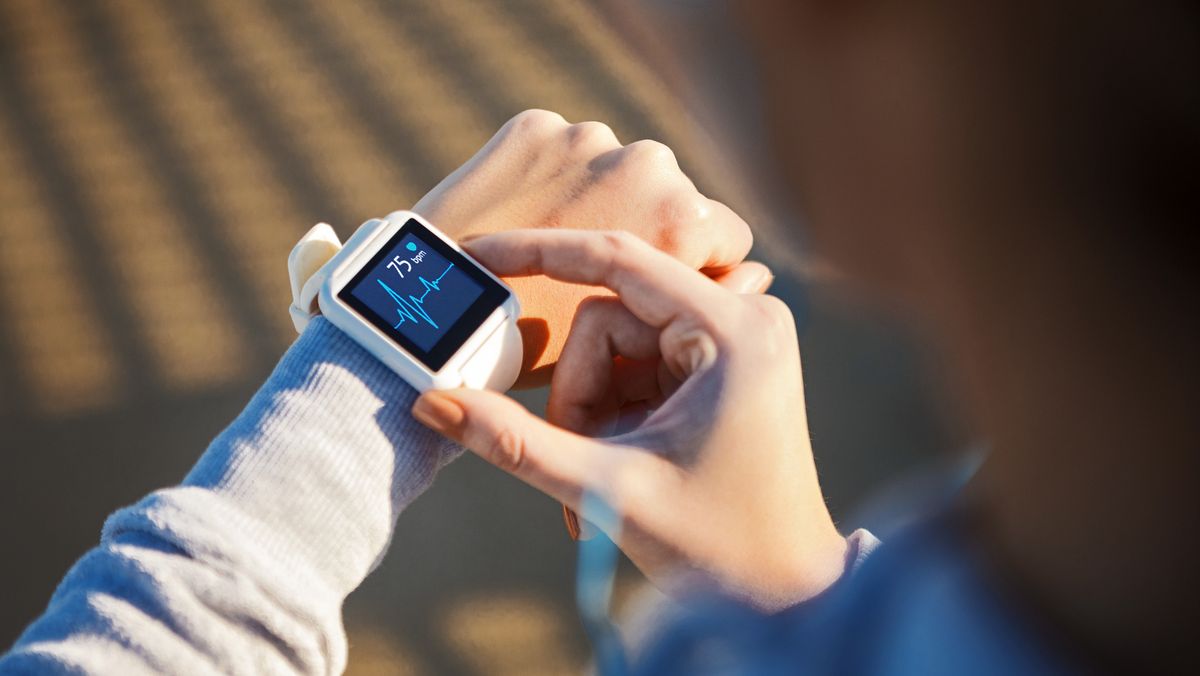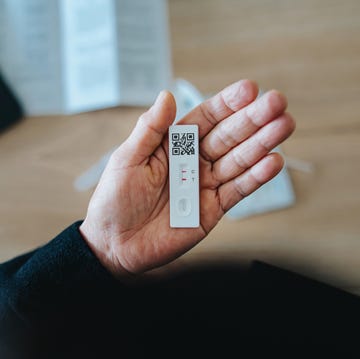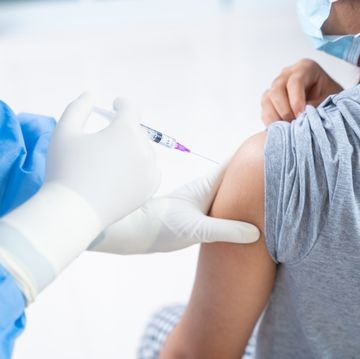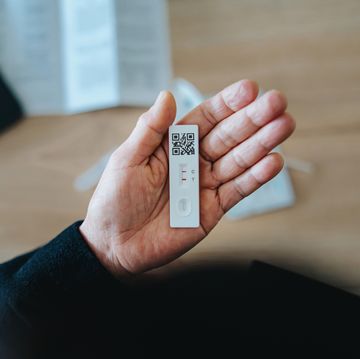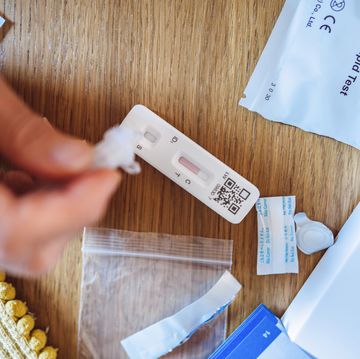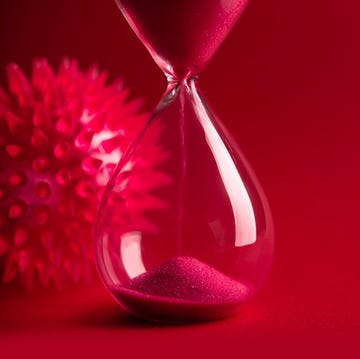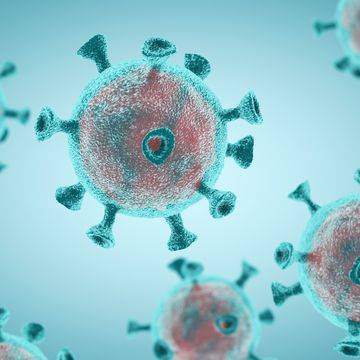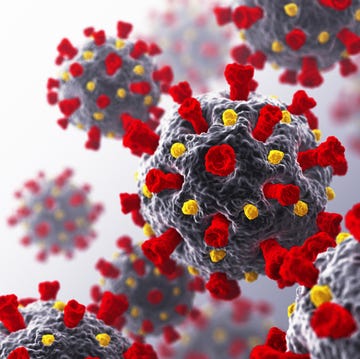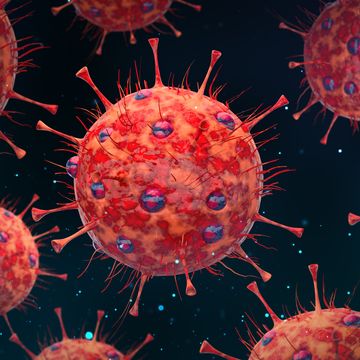A man who says he had a “mild case” of COVID-19 several months ago just revealed that he’s still having heart issues following his recovery from the virus. Anthony Smith, vice president of digital media company NationSwell, shared his story in a Twitter thread that’s now gone viral.
“I just wanted to join the chorus of people sharing that my resting heart rate averaged in the low 80s pre-COVID and now it sort of hovers at just above 100 [beats per minute],” Smith wrote. “Sometimes I’ll wake up in the middle of the night with 110 or 120.”
Smith calls the experience “alarming and anxiety inducing” but “not life-altering per se,” adding that he’s “fortunate in that respect.”
Apparently, he isn’t alone in this. “This is exactly what my 19-year-old daughter is experiencing. Her heart rate ran around 73 resting, even in the [throes] of the virus. Now, with the simplest movement, her HR will shoot to 127-146. Will also shoot up while sitting still—no reason. It’s CRAZY!!” one person responded. “I was flat out asymptomatic, I only found out I had it when a coworker got sick and we all had to get tested. I’ll be sitting at my desk in my air-conditioned office and my watch will alert me of a high heart rate. No breathing issues. No fever. But my heart is F’d,” another said.
Other people offered hope that it would get better. “I’ve had this too. Had COVID in February and experienced irregular heart rhythms for three months. Saw a cardiologist twice. Got an echocardiogram that came back normal, but the weird rhythms continued. Only now is it subsiding. It will quiet over time,” someone wrote.
COVID-19 is a respiratory infection caused by the novel coronavirus, but it’s been linked to strange symptoms like a skin rash and complications like blood clots. So, are heart rate issues something you should be concerned about if you contract the illness? Here’s what experts say.
How does COVID-19 impact the heart?
It’s important to note that COVID-19 is a disease caused by a newly discovered coronavirus and, with that, there’s a lot researchers are still learning about it. Still, there is some early evidence that the virus could cause heart issues for people.
One study of 187 patients with COVID-19 that was published in JAMA Cardiology found that nearly 28% of them had a cardiac issue that led to heart dysfunction and arrhythmias, i.e. irregular heart beats.
Another review of research published in the American Journal of Emergency Medicine analyzed 45 articles on COVID-19 and heart issues, and concluded that doctors should be aware that the virus can cause “cardiovascular complications,” including inflammation of the heart muscle, heart failure, heart attack, abnormal heart beats, and blood clots.
Matthew Tomey, M.D., a cardiologist at The Mount Sinai Hospital in New York City says he’s seen “many” people come into his office with heart rate issues after contracting COVID-19. “It’s often fit people who are surprised by how fast their heart rate gets, either when they are resting or when they exert themselves with usual activities,” Dr. Tomey says. “It’s a very foreign feeling for people who have felt fit.”
Some people can experience an irregular heart beat and not notice it, he explains, but others may have symptoms like a fast or slow heart beat, skipping beats, lightheadedness, and even chest pain.
For what it’s worth, this isn’t really a common thing with infections as a whole. “I have never seen this after other infections, so I suspect it is another newly-recognized condition associated with COVID-19,” says Richard Watkins, M.D., an infectious disease physician and professor of internal medicine at the Northeast Ohio Medical University.
Why is there a link between COVID-19 and an irregular heart rate?
It’s not entirely clear, but there are some theories. “We know that SARS-CoV-2 [the virus that causes COVID-19] can cause inflammation of the heart muscle, and that can lead to decreased cardiac function,” explains infectious disease expert Amesh A. Adalja, M.D., senior scholar at the Johns Hopkins Center for Health Security. “This doesn’t occur in everyone, though.”
Dr. Tomey also has a few theories. “Certainly the elephant in the room is whether this is an effect or after-effect of the COVID-19 infection itself,” he says. “It’s a possibility that we haven’t proven yet.”
He says it’s also possible that people may have been more sedentary than they realize leading up to and after having COVID-19, and that can throw their heart rate out of whack when they do things they didn’t have trouble with in the past. “We underestimate how much aerobic activity we get in our daily lives when we’re doing things like running to the bus and walking to work,” Dr. Tomey says. “That reduction in daily step count and daily exercise might have an impact on heart rate.”
How long do these potential heart problems last after COVID-19?
It’s not clear at this point. An irregular heart rate, in particular, is a “symptom, so you have to look for the underlying cause,” Dr. Adalja says. It could be due to something as simple as dehydration or anemia, or it could be a sign that the heart isn’t pumping as well as it should, he says.
Dr. Adalja says he thinks this will go away for former COVID-19 patients with time, but he stresses, “we don’t even have a good idea of what the underlying cause is.”
Support from readers like you helps us do our best work. Go here to subscribe to Prevention and get 12 FREE gifts. And sign up for our FREE newsletter here for daily health, nutrition, and fitness advice.
